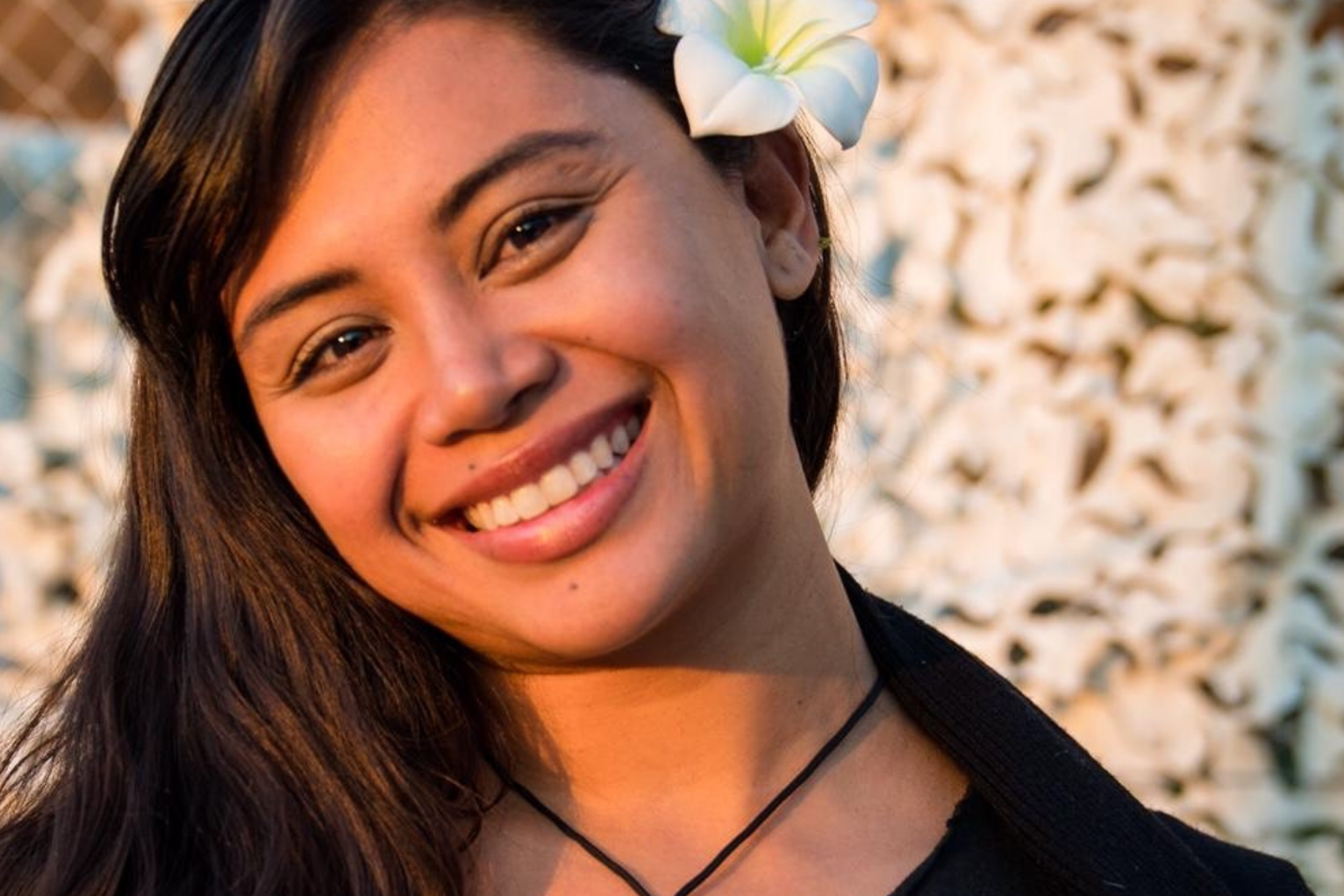Impact Interview: Moñeka De Oro
Name: Moñeka De Oro
Role/Function: Fellow, Micronesia Climate Change Alliance
What She’s Currently Working On:
My work involves expanding the reach of MCCA, our fairly new Guam-based non-profit, to weave climate action and the Just Transition across the US-affiliated Pacific Islands. This means I create meaningful multimedia resources to perpetuate living more holistically and sustainably in Micronesia. These resources include information on climate justice, food sovereignty, disaster preparedness, energy democracy, traditional island knowledge, and zero waste. I'm also currently designing a prayer/medicine tour of the sacred Mariana islands to celebrate the last 500 years of indigenous resilience throughout colonization.
1. What was the “aha” moment that sparked your interest in social impact?
My family has always been driven towards the service of others. Both my grandmothers were healers, one in a traditional herbal sense and the other as a western-trained nurse. Their compassion and unwavering belief in a higher power will always inspire me. My parents are both dedicated educators who taught me and my sisters to think critically about our world. I also grew up often volunteering for several different causes with my family. So I am not sure if there was ever a singular moment that sparked my interest in wanting to realize much-needed social change.
However, much of my own personal journey in political activism was ignited during my freshman year of college when I was researching why the people of Guam cannot vote for US President, even though we are US citizens. I was in a cold library looking through microfiche files and came across a speech my late grandfather, Senator Francisco R. Santos, delivered to the US Congress advocating for more political rights for the Chamoru people. I was already so homesick that first year away from home, and reading my tåtå’s powerful words moved me to tears and into action. From that moment I realized there was so much more to learn about my island home. I’ve since dedicated much of my academic and personal energies towards continuing that multi-generational struggle for sovereignty and protection of Chamoru homelands and seas.
2. How did you break into the social impact space?
I believe that everyone has a purpose to serve the greater good and that no matter what job you have, you can bring a mindset and a heart intention to create social impact and systemic transformation. My education is in anthropology and sociology, and as a social scientist, I always seek to understand the bigger picture and figure out my role. As an indigenous woman and a nature lover, I also have a natural inclination toward wanting to live and play outside and be with the elements. I’m lucky that I've been able to do that for “work”. My personal career path is kind of all over the place - just in the last 6 years, I’ve been a teacher, an archaeologist, a biological field technician, a historic preservationist, a grant assistant, and now I work in the climate justice realm.
To answer the question, as a true millennial, my advice is to always choose people and purpose over profit. Find a job that you actually enjoy and look forward to doing every day. Most of the work I am most proud of has been my unpaid community work from over a decade of grassroots activism. I'm so blessed for the opportunity to do community work full-time now, which is a testament to cosmic alignment. The world does not need any more extravagantly wealthy people. The future generations need us to be savvy, creative solutionaries. In order to restore harmony and healing back to our planet, we need to cultivate that within ourselves first and foremost. Finding your soul’s purpose is the greatest social impact we all can possibly make individually and collectively.
3. What most excites you about the social impact space right now?
One trend that I hope continues to grow is integrating practices of self-care and conscious awareness into social movement spaces. Many people, myself included, in movement spaces suffer from burnout. The emphasis on rest and radical self-care is so incredibly necessary in dismantling these oppressive systems. Women of color are at the intersections of so many injustices and they are up to some really beautiful revolutionary efforts. I'm really excited about the afro-indigenous futurism and spiritual work that is being put out into the world, much of which really grounds and decolonizes self-care rituals and wellness. The beauty and body care industries can be toxic, so to witness the rise of small women crafters, makers, and practitioners really speaks to the resistance and ingenuity of women now.
FOR MORE “5 QUESTIONS” INTERVIEWS ALONG WITH CURATED NEWS, JOBS AND INSIGHTS FROM THE WORLD OF CORPORATE RESPONSIBILITY, SUSTAINABILITY AND SOCIAL IMPACT, SIGN UP FOR THE RECONSIDERED NEWSLETTER.

